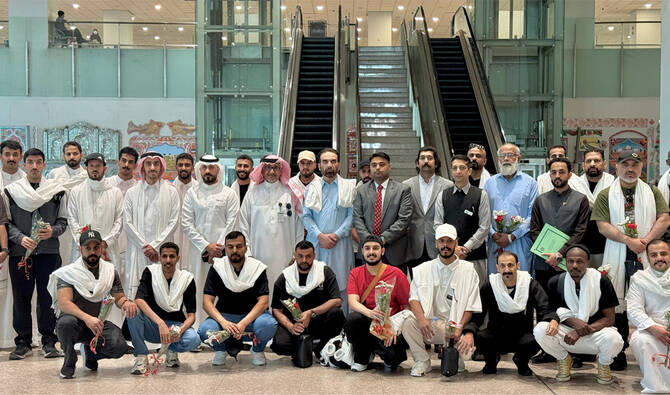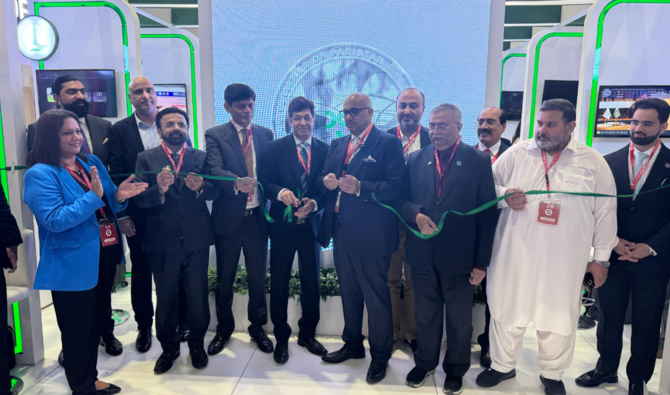KARACHI: Pakistani police on Saturday arrested eight people in the southern port city of Karachi after a stampede killed 12 people at a Ramadan food and cash distribution point a day earlier.
Hundreds of women and children rushed to collect free food and cash outside a factory in an industrial area of the city on Friday. Business owners during the Islamic holy month often hand out cash and food, especially to the poor. An initial report from the police says nine women, aged between 40 and 80, and three children, aged between 10 and 15, died in the crush.
Police said the eight arrests include the factory manager, who did not tell local authorities about the Ramadan alms giving.
“Factory management did not open the inside gate of the factory and, due to the narrow street, the people at the tail of the line pushed elderly women and children,” Superintendent of Police Investigations Dr. Hafeez Bugti told the media during a visit to the site. “As a result, pressure increased enormously, and women and children became the victims of the stampede.”
Police say they issued and publicized an order saying that any person or organization planning to distribute food or other things to the poor must inform authorities in advance.
The chief minister of Sindh province, where Karachi is located, announced compensation for people injured in the stampede and relatives of the victims. Murad Ali Shah said each family who lost a loved one will receive 500,000 rupees, while everyone injured will receive 100,000 rupees.
Funerals were held Saturday for some of the deceased: Naseem Begum, 50, and Ma’afia Begum, 55, were buried in Karachi’s Orangi Town neighborhood. Shehzadi Umar, 60, was laid to rest in her hometown of Mirpur Mathelo, some eight hours from Karachi.
At least 23 people have died in Ramadan food stampedes since the start of the holy month. On Saturday, police fired tear gas at crowds who gathered to receive free flour bags in the northwestern city of Peshawar.
Cash-strapped Pakistan launched an initiative to distribute free flour among low-income families to ease the impact of record-breaking inflation and soaring poverty during the holy month.
While Friday’s stampede was not part of that government program, crowds have swelled at the distribution centers in recent days. The free flour distribution initiative was launched by Pakistan’s Prime Minister Shahbaz Sharif. His coalition government is facing the country’s worst economic crisis amid a delay in getting a key $1.1 billion tranche of a $6 billion bailout package originally signed in 2019 with the International Monetary Fund.
Weekly inflation is 45%, unseen since Pakistan got its independence from British colonial rule in 1947. Rising food costs and soaring fuel bills have raised fears of public unrest.
Neither Sharif nor Pakistani President Arif Alvi have commented on Friday’s stampede.



















